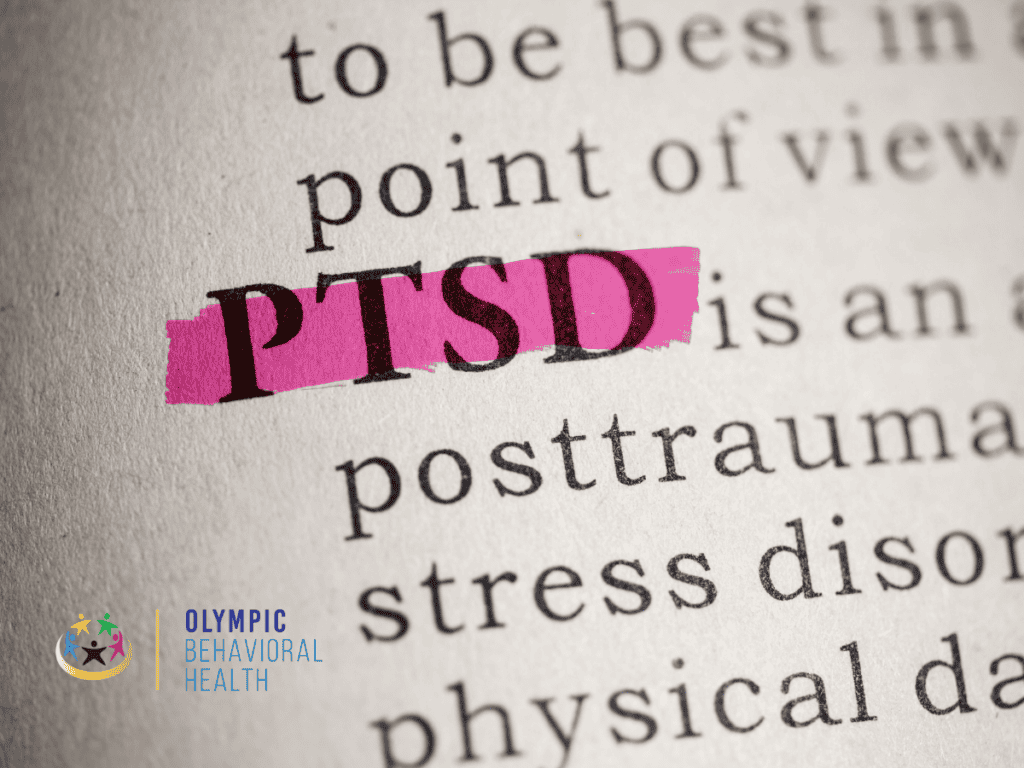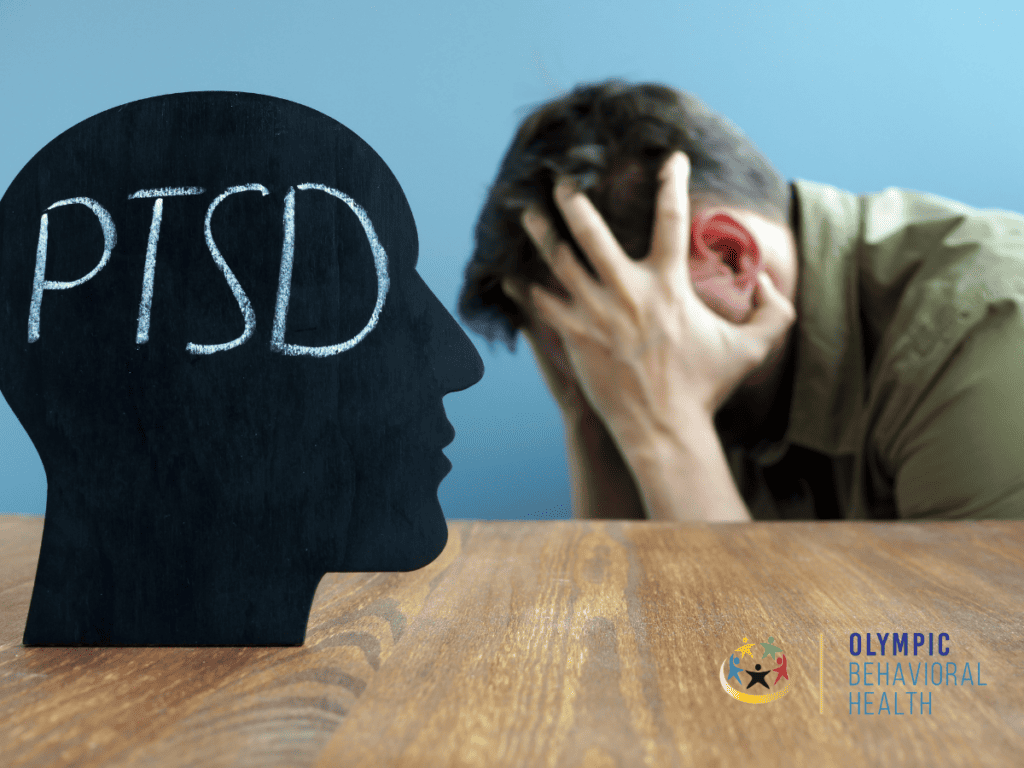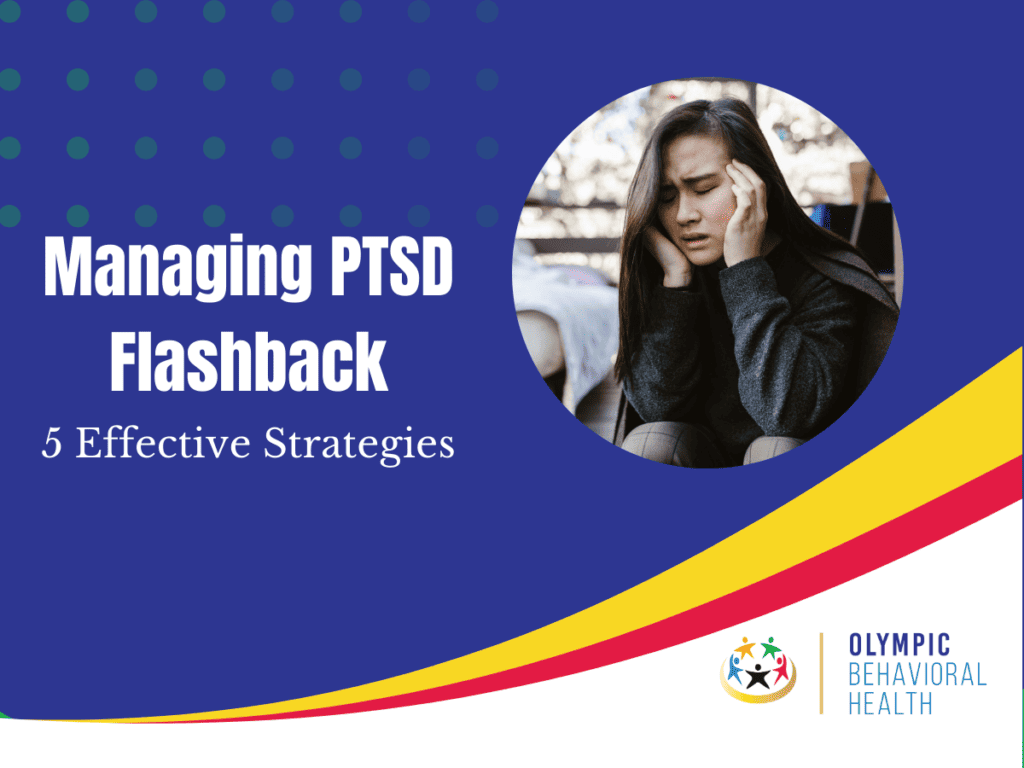Post-traumatic stress disorder (PTSD) casts a formidable shadow on the mental well-being of individuals who have experienced or witnessed traumatic events. What’s often overlooked is the profound impact PTSD can have on addiction, with a significant portion of individuals struggling with substance use disorders also facing PTSD. In the United States alone, approximately 6% of the population will suffer from PTSD at some point in their lives. At the same time, globally, the World Health Organization (WHO) estimates that 3.6% of the world’s population experiences PTSD in a given year. As of 2020, a staggering 13 million Americans were reported to be living with PTSD, a condition marked by symptoms ranging from intrusive memories to emotional numbness.
At the heart of PTSD lies the haunting specter of flashbacks—intense and distressing episodes that transport individuals back to the traumatic events they endured. Triggered by sensory cues such as sights, sounds, or smells reminiscent of the trauma, PTSD flashbacks can be profoundly disorienting, thrusting individuals into a vivid reliving of the past, complete with the original emotions and physical sensations.
What’s often overlooked is the profound impact PTSD can have on addiction, with a significant portion of individuals struggling with substance use disorders also facing PTSD. This dual diagnosis problematizes the management of PTSD flashbacks, as addiction can exacerbate the intensity and frequency of these distressing episodes. For instance, substance use may serve as a coping mechanism for individuals struggling to manage the overwhelming emotions and sensations associated with flashbacks, inadvertently perpetuating the cycle of trauma and addiction.
Recognizing the interconnected nature of PTSD and addiction underscores the importance of simultaneous treatment for both conditions, improving overall mental health outcomes and enhancing the effectiveness of PTSD treatment, including strategies for managing flashbacks. By offering comprehensive care that addresses trauma and addiction, individuals can acquire the necessary tools and support to navigate PTSD flashbacks and achieve lasting recovery and resilience.

What Are The 5 Most Effective Strategies for Managing PTSD Flashbacks?
1. Develop Insight into the Traumatic Event
When confronted with the abrupt emergence of PTSD flashbacks, they possess the capacity to interrupt the flow of your day abruptly. In those instances, as you find yourself reliving the events responsible for your trauma, your cognitive faculties may be compromised, impeding a logical processing of your condition. The overwhelming presence of anxiety and stress tends to dominate your thoughts, creating a challenging environment for rational contemplation.
Engaging in a comprehensive understanding of what precisely constitutes a flashback, discerning the triggers that bring them forth, and recognizing the distinctive patterns that typically influence your experience can serve as a foundational anchor when these flashbacks occur. By acquiring insight into these aspects, you gain awareness and establish a valuable point of reference to navigate and manage the moment when the flashback initiates.
2. Delve into the Dynamics of Flashbacks
In the context of Post-Traumatic Stress Disorder (PTSD), the imprint of a traumatic memory can exert such profound influence that it engenders a mental state known as dissociation, wherein the individual loses connection with the present moment. This dissociation can manifest in varying degrees, from total disconnection to partial detachment from immediate surroundings. The intensity of the recollection during these moments can be so overwhelming that it simulates a vivid reexperience of the initial traumatic event, capturing the emotional essence of the original trauma.
Moreover, it is crucial to acknowledge that flashbacks often find their genesis in triggers, acting as catalysts that propel the individual into the realms of these distressing recollections. By exploring and understanding the intricacies of this phenomenon, one can equip oneself with the knowledge needed to discern the triggers, identify the nuances of dissociation, and navigate the multifaceted aspects of reliving traumatic memories. This heightened awareness facilitates a deeper comprehension of the flashback experience and lays the groundwork for implementing effective coping mechanisms and interventions.
3. Recognize Triggers for Enhanced Coping
A pivotal aspect of managing flashbacks entails a proactive approach to discerning and comprehending your triggers. The most manageable flashback is the one that remains dormant, and a key mechanism to achieve this is to gain a comprehensive understanding of the factors that incite them. Armed with this knowledge, it becomes possible to navigate around potential triggers, thereby mitigating the occurrence of distressing flashbacks.
The acquisition of trigger awareness often arises from personal experience, where individuals learn to recognize patterns and stimuli that precede the onset of flashbacks. Additionally, psychotherapy can prove instrumental in this process by providing a structured and therapeutic environment where trained professionals assist in identifying predictable triggers. Through such collaborative efforts, individuals not only gain insights into their triggers but also acquire valuable tools and strategies to manage and circumvent the onset of flashbacks preemptively, fostering a proactive and empowering approach to mental health.
4. Recognize Dissociative Symptoms
A crucial aspect of managing PTSD flashbacks involves cultivating a proactive awareness of the symptoms associated with dissociation, which often serve as precursors to the onset of a flashback. Recognizing these early warning signs not only facilitates a better understanding of one’s mental state but also provides an opportunity for intervention to reduce or prevent the occurrence of the flashback event.
These symptoms of dissociation may manifest in various forms, ranging from subtle shifts in perception to more pronounced alterations in consciousness. By familiarizing themselves with these indicators, individuals can establish a personalized toolkit for early detection, enabling them to respond promptly and effectively when such symptoms arise. Additionally, a retrospective review of the emotions and sensations experienced before a previous flashback can serve as a valuable exercise in honing this skill of early recognition, contributing to a heightened ability to anticipate and manage dissociation, thereby bolstering resilience against the potential impact of distressing flashback events.
5. Use Grounding Techniques
Effectively countering the disorienting effects of PTSD flashbacks involves incorporating grounding techniques as a fifth strategic approach. These techniques aim to anchor individuals in the present moment, resisting the involuntary transport back to the time of the original trauma that characterizes flashbacks.
Engaging each of your five senses becomes a powerful tool in this grounding process:
- Smell: A potent fragrance or aroma is a sensory distraction, diverting attention from an impending flashback. Recognizing that smells can often act as triggers for PTSD reactions, intentionally shifting focus to an alternative olfactory stimulant, such as mint or cologne, can effectively redirect attention and disrupt the flashback cycle.
- Sight: Visual disturbances are expected during the onset of a flashback. Reconnecting visually with the immediate surroundings provides a tangible link to the present. Conducting a mental inventory of the visual elements around you—identifying objects, colors, and people—creates a visual grounding that helps maintain a connection with the current reality.
- Sound: Loud music, wildly discordant and atonal pieces, pulls you into the current moment. A curated grounding playlist can be a valuable resource, offering a collection of sounds that forcefully demand attention and redirect focus away from the distressing memories associated with flashbacks.
- Touch: Utilizing tactile sensations can be an effective strategy for grounding. Holding a hot beverage or a piece of ice introduces a contrasting sensory experience, diverting attention to the immediate physical sensations. Alternatively, focusing on the textures of nearby surfaces provides a tactile distraction, particularly useful in the absence of extreme temperature stimuli.
- Taste: Biting into a sour lemon or lime creates a solid and immediate physiological reaction that commands attention. This intense response to fresh citrus is a potent tool to sidestep a flashback, dominating the senses and redirecting focus away from distressing memories.
What Are Additional Coping Strategies for Managing PTSD Flashbacks and Addiction?
Navigating the challenges of managing PTSD flashbacks and addiction simultaneously can feel overwhelming, but there are additional practical coping strategies that can help individuals regain control and find healing:
- Mindfulness: Practicing mindfulness can be immensely beneficial in addiction recovery. By staying present and aware of your thoughts, feelings, and physical sensations, you can better recognize triggers and cravings as they arise. Mindfulness techniques can help you observe these urges without acting on them impulsively, allowing you to choose healthier responses.
- Progressive Muscle Relaxation: Engaging in progressive muscle relaxation exercises promotes relaxation, reduces stress, and helps manage the physical discomfort associated with withdrawal symptoms or cravings. By consciously relaxing your muscles, you can alleviate tension and pain, making it easier to resist the urge to use addictive substances.
- Journaling: Journaling can serve as a valuable tool in addiction recovery by providing a safe outlet to explore and process emotions, thoughts, and triggers. By documenting your experiences and reflections, you can gain insight into the underlying causes of your addiction and identify patterns or triggers that contribute to cravings. Journaling can also serve as a form of self-expression and self-care, helping you navigate the ups and downs of recovery.
- Create a Relapse Prevention Plan: Work with your therapist or counselor to develop a relapse prevention plan that outlines strategies for identifying and managing triggers, coping with cravings, and seeking support when needed. A plan can help you navigate difficult situations and stay on track with your recovery goals.

Can PTSD Flashbacks Disappear?
With appropriate treatment and coping strategies, individuals may experience a reduction in the frequency and intensity of flashbacks, and in some instances, they may seemingly disappear. However, it’s crucial to understand that the process is highly individualized, and not everyone will have the same outcome.
What Factors Influence The Course Of PTSD And The Likelihood Of Flashbacks Diminishing?
- Treatment: Engaging in evidence-based treatments such as psychotherapy, particularly modalities like cognitive-behavioral therapy (CBT) and eye movement desensitization and reprocessing (EMDR), is effective in reducing the impact of PTSD symptoms, including flashbacks.
- Coping Strategies: Learning and consistently applying effective coping strategies, such as grounding techniques, mindfulness, and progressive muscle relaxation, can contribute to managing and decreasing the frequency of flashbacks.
- Time: The natural healing process over time can reduce the intensity and frequency of flashbacks for some individuals.
- Support Systems: Having a solid support system, including friends, family, and mental health professionals, can play a crucial role in the recovery process.
When Should I Seek Professional Help?
Anyone experiencing PTSD symptoms, including persistent flashbacks, should seek professional help. A mental health professional can thoroughly assess and recommend an appropriate treatment plan tailored to individual needs.
What Are Potential Complications and Risks Associated with PTSD Flashbacks?
Experiencing PTSD flashbacks poses challenges not only for the individual undergoing them but also for those in their immediate surroundings. While these flashbacks are an inherent aspect of PTSD, addressing associated complications and risks is crucial to safeguard the individual’s safety and overall well-being.
One potential risk linked to PTSD flashbacks involves the resort to alcohol or drugs as a coping mechanism. Dependence on substances can exacerbate PTSD symptoms, intensifying the frequency and severity of flashbacks and contributing to the development of addiction and other health issues. It is imperative to promote healthier coping mechanisms and extend support to those with substance abuse.
Sleep disturbances represent another potential complication arising from PTSD flashbacks. These intrusive memories can disrupt regular sleep patterns, leading to insomnia and other sleep-related disorders. The resulting lack of sleep further amplifies PTSD symptoms, creating a detrimental cycle. Encouraging the adoption of good sleep hygiene practices and seeking medical assistance for sleep-related concerns becomes paramount in addressing this challenge.
Feelings of shame and perceived abandonment can also manifest as a consequence of PTSD flashbacks. Individuals may experience a sense of shame or embarrassment related to their experiences, prompting withdrawal and avoidance of social interactions. Establishing a secure and supportive environment is essential, fostering an atmosphere where individuals can openly express their emotions without fear of judgment. Encouraging the development of social support networks becomes crucial in mitigating feelings of isolation and promoting overall well-being.

What Is The Role of Professionals in Managing PTSD Flashbacks?
Effectively addressing and managing PTSD flashbacks can be challenging, so emphasizing the importance of seeking professional assistance for optimal results is imperative. Consulting with a mental health professional, be it a psychiatrist or therapist, creates a secure and supportive space conducive to discussing and processing the underlying trauma that precipitated the development of PTSD.
Professional intervention offers a range of treatment options, including medication and psychotherapy. Medications are instrumental in mitigating symptoms like anxiety and depression, while psychotherapy equips individuals with coping mechanisms and strategies to navigate the aftermath of their traumatic experiences.
Cognitive-behavioral therapy (CBT) stands out as a practical psychotherapeutic approach to treating PTSD. By concentrating on modifying negative thought patterns and behaviors contributing to PTSD symptoms, CBT aids individuals in reshaping their cognitive responses. Additionally, exposure therapy, another valuable form of psychotherapy, proves particularly beneficial in addressing flashbacks and nightmares associated with PTSD.
Choosing a mental health professional with expertise in treating PTSD is crucial, ensuring a collaborative and comfortable working relationship. Seeking professional help represents a pivotal step in managing PTSD flashbacks, contributing to an overall enhancement of the individual’s quality of life.
How Common is the Co-Occurrence of Addiction and PTSD?
It’s frequent for addiction and PTSD to occur together. In a recent epidemiological study conducted in 2021, nearly half of individuals diagnosed with PTSD in the United States were also found to have Substance Use Disorders (SUDs). Similarly, research on individuals with SUDs suggests that approximately 25-34% of them also experience current symptoms of PTSD.
How do PTSD Flashbacks Contribute to Addiction?
PTSD flashbacks can trigger intense emotions and sensations, leading individuals to use substances as a coping mechanism. This can perpetuate the cycle of trauma and addiction, making recovery more challenging.
Why is it Essential to Address both PTSD and Addiction Simultaneously?
Treating both conditions simultaneously is crucial because they often exacerbate each other. Managing PTSD symptoms can reduce the likelihood of turning to substances for relief while addressing addiction can enhance the effectiveness of PTSD treatment.
What are the Risks Associated with PTSD Flashbacks when Addiction is Involved?
One risk is the potential for substance abuse as a coping mechanism, which can worsen both PTSD symptoms and addiction. Additionally, sleep disturbances and feelings of shame or isolation can further complicate recovery.
Get Help From Olympic Behavioral Health
If you or someone you know is facing the challenges of PTSD and addiction, timely and professional intervention is paramount for reclaiming stability and overall well-being. Olympic Behavioral Health and it’s Depression Therapy in West Palm Beach. stands ready to offer the necessary support and expertise to guide you through this journey.
Why Choose Olympic Behavioral Health?
- Specialized Expertise: Our team of dedicated professionals specializes in treating PTSD and addiction, understanding the unique complexities of each individual’s experience.
- Comprehensive Approach: We offer a range of effective treatments, including short- and long-term psychotherapy, addiction counseling, as well as medication-assisted treatment tailored to address the diverse symptoms associated with PTSD and addiction.
- Timely Support: Recognizing the urgency of timely intervention, we prioritize swift responses to ensure you receive the care you need when you need it most.
Don’t let PTSD and addiction symptoms such as insomnia, flashbacks, and emotional turmoil dictate your life. Take control with Olympic Behavioral Health.

Share This Post



